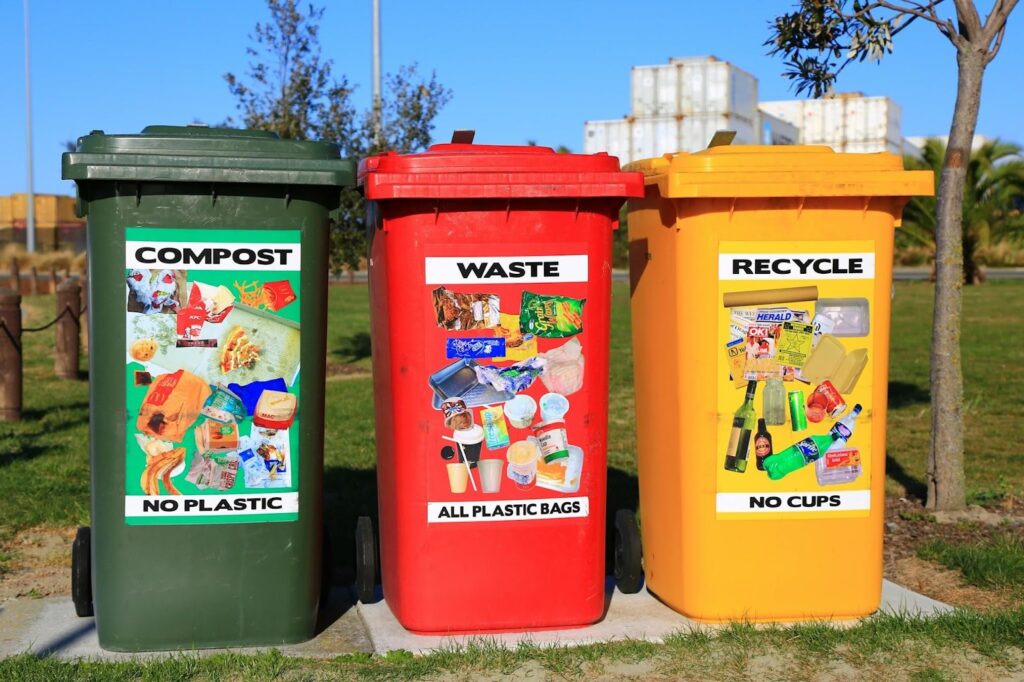Selecting the right sustainable waste management service is crucial for businesses and communities aiming to minimize their environmental impact. With increasing awareness about environmental conservation, it is essential to partner with waste management services that prioritize sustainability. This decision involves considering various factors such as the service provider’s recycling practices, waste reduction strategies, and commitment to sustainability goals. Making an informed choice can lead to significant benefits, including reduced landfill waste, conservation of natural resources, and a positive corporate image.
Understanding Recycling Practices
When choosing a sustainable waste management service, it is important to delve into the provider’s recycling practices. This includes understanding what types of materials they can recycle and how efficiently they process these materials. Effective recycling can significantly reduce the amount of waste sent to landfills, conserving valuable resources and minimizing environmental damage.
Evaluate if the service provider has partnerships with local recycling facilities and complies with current recycling regulations. A good waste management service should offer regular reports on recycling rates and improvements over time. These insights can help businesses track their sustainability progress and make necessary adjustments. You can find affordable waste management services that prioritize recycling and offer transparent reporting, making it easier for you to make an informed decision. It is also helpful to inquire about any additional recycling initiatives or programs that the service provider may offer, such as e-waste recycling or composting.
Evaluating Waste Reduction Strategies
A comprehensive waste management service should also employ robust waste reduction strategies. This includes initiatives like waste audits, which identify the types and volumes of waste generated, and help in crafting targeted reduction measures. By identifying common waste sources, businesses can implement policies that minimize waste generation at the source.
Effective waste reduction strategies could involve employee education programs focused on waste minimization and reuse. Promoting a culture of sustainability within the organization encourages employees to adopt environmentally friendly practices, further contributing to waste reduction goals.
Commitment to Sustainability Goals
The commitment of a waste management service to sustainability goals is reflected in its long-term vision and operational priorities. Assess if the service provider has clear, measurable sustainability objectives and a timeline for achieving them. Commitment to goals such as zero waste certification or carbon neutrality by a certain year can indicate a serious approach toward sustainability.
Look for certifications or endorsements from recognized environmental organizations. Such accolades are often a testament to the provider’s dedication and effectiveness in implementing sustainable waste management practices.
Integrating Technology and Innovation
Technology plays a crucial role in enhancing waste management efficiency. Evaluate whether the service provider uses advanced technologies like IoT sensors, data analytics, and automation to streamline their processes. These technologies can help in real-time tracking of waste collection and processing, leading to more efficient and cost-effective operations.
Innovation in waste management also involves exploring new recycling methods and materials recovery techniques. Providers investing in research and development for innovative waste solutions are likely to offer more sustainable and effective services. More sustainable management practices not only benefit the environment but also contribute to cost savings for businesses.
Ensuring Regulatory Compliance
Compliance with local, state, and federal waste management regulations is indispensable for any service provider. Ensure that the ibc tote pickup company or one with a different specialisation adheres to all regulatory requirements and maintains up-to-date knowledge of any changes in waste management laws. Non-compliance can result in legal penalties and damage to your company’s reputation.
Regular audits and compliance checks should be part of the service provider’s routine operations. Partnering with a compliant provider not only ensures legal adherence but also reinforces your business’s commitment to lawful and ethical waste management practices. Meticulous compliance can also lead to cost savings, as penalties and fines can be avoided. Not to mention, it sets a positive example for employees and the community.
Assessing Customer Support and Service Quality
Reliable customer support is a hallmark of a competent waste management service. Assess the quality of customer support through reviews, testimonials, and direct interactions. A provider offering 24/7 support, easy-to-reach channels, and swift resolution of issues usually ensures a smooth and hassle-free experience.
Consider the overall service quality, including timeliness of waste pickups, cleanliness of waste containers, and flexibility in addressing specific needs. High service quality can directly impact the efficiency of your own operations, making it a critical factor in your decision-making process. It is also worth considering the provider’s reputation and history of customer satisfaction when evaluating their service quality.
Choosing a sustainable waste management service involves thoroughly assessing recycling practices, waste reduction strategies, commitment to sustainability goals, use of technology and innovation, regulatory compliance, and customer support. By partnering with a reliable and effective provider, businesses can significantly contribute to environmental conservation while improving their own operations. Investing in sustainable waste management services not only benefits the environment but also enhances your corporate image as a responsible and environmentally conscious organization.






